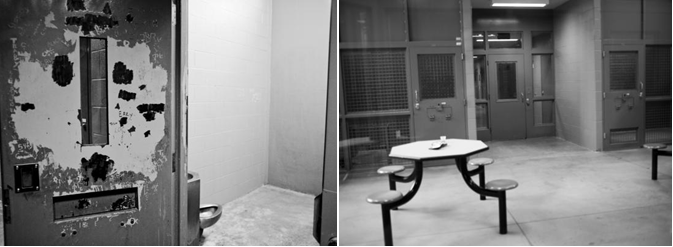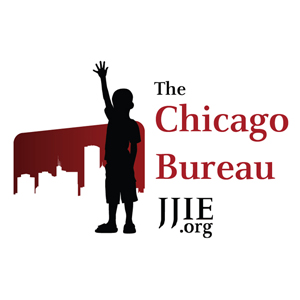
Inside IYC-Joliet, which is now shut down.
CHICAGO--In an attempt to curb what lawmakers have deemed unacceptably high rates of sexual abuse in Illinois’ juvenile prisons, the state is trying to pass legislation that will create an “Independent Juvenile Ombudsman,” a government employee who will advocate on behalf of victimized prisoners.
Meanwhile, there are reports that a now-closed facility with a high rate of abuse, IYC-Joliet, could be put to use to house mentally ill and older inmates.
The ombudsman bill that passed through the Illinois House uncontested during the veto session now requires approval from the state Senate.
In June 2012, the federal Bureau of Justice Statistics, part of the U.S. Department of Justice, reported Illinois has one of the worst rates in the country of youth sexual abuse in prisons. Illinois’ rate of abuse is more than 15 percent, compared to the national average of fewer than 10 percent. Among the nations’ worst facilities was the Illinois Youth Center in Joliet, a high security juvenile detention center that has since been closed. One out of every five youths reported experiencing sexual victimization at the center, according to the federal study.
Illinois’ high levels of juvenile abuse stems in large part from staff sexual misconduct, according to the report. Proponents of the bill hope that increased independent monitoring would allow inmates to file complaints about prison guards and staff without fear of backlash. The ombudsman would be able to enter juvenile prison facilities at any time and speak to anyone at his or her discretion, acting as a monitor for the prisons, a confidant for the youths and an enforcer of the rules.
 Hiring an ombudsman is one of several measures the Illinois Department of Juvenile Justice recommended in order to decrease rape and sexual violence in prisons.
Hiring an ombudsman is one of several measures the Illinois Department of Juvenile Justice recommended in order to decrease rape and sexual violence in prisons.
Arthur Bishop, the director of the Illinois Department of Juvenile Justice, which directs the youth facilities, has been in the spotlight and called to give testimony at panels on conditions in the state’s youth centers – but there have been no severe consequences in part because the worst facilities have already been closed down.
A report published last month by Kinsale Management Consulting, an independent firm, called for improvements to juvenile facilities, staff training and staff supervision to protect youth from further sexual victimization. The report recommended increased video monitoring in prisons and decreased unobserved one-on-one contact between staff members and youth.
The Illinois Department of Juvenile Justice is also creating a 24-hour hotline to give youths more options for voicing their concerns about conduct in prison facilities.
The U.S. Department of Justice is expected to start conducting audits of prison facilities late this year as part of the federal Prison Rape Elimination Act first passed in 2003.